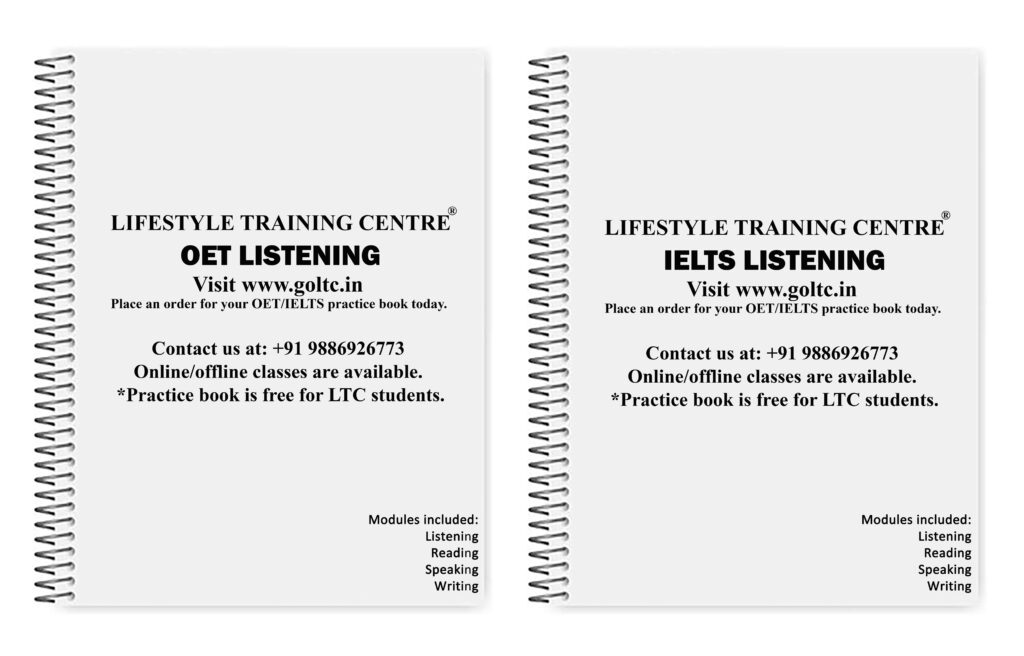Task 1
1. Do you enjoy studying mathematics? Why or why not?
To be honest, mathematics was never really my cup of tea. While I can understand its importance, I always found it quite hard to wrap my head around the abstract concepts. I struggled with subjects like algebra and calculus, and they always felt like a mountain too high to climb. The complex formulas and equations seemed like an endless maze, and I often found myself feeling frustrated. Eventually, I decided to shift my focus to commerce, which felt like a more manageable and rewarding path for me.
2. How important do you think mathematics is in our daily lives?
While mathematics does have its place in everyday life, I must admit that I often feel it’s a bit overemphasized. Sure, it’s crucial for tasks like budgeting, measuring, or even planning events, but there are times when I wish it didn’t have such a tight grip on daily routines. In my view, math is everywhere, from calculating travel distances to handling personal finances, but I’d say that other skills, such as critical thinking and creativity, are just as important. Nevertheless, one cannot deny its significance in helping us make well-informed decisions.
3. Are there any particular areas of mathematics that you find challenging or interesting?
When it comes to math, I would say almost everything seemed like a challenge to me, especially algebra and calculus. Algebra always felt like a puzzle with no easy solution, while calculus seemed like an impenetrable fortress. I know these areas are fundamental, but I found them extremely difficult to grasp, which made me eventually decide to shift towards a field that felt more in line with my strengths. To put it bluntly, math just wasn’t my forte.
4. Can you give an example of a real-life situation where mathematics is essential?
Certainly! One area where mathematics is vital is in financial planning. Whether it’s creating a tight budget, calculating savings, or figuring out interest rates, mathematics plays a role in every step of managing money. For example, when planning for a big purchase, you need to break down the numbers to ensure you’re not living beyond your means. Without a solid understanding of basic math skills, managing day-to-day financial decisions would be incredibly difficult. It’s a skill that really pays off in the long run.
5. Do you think mathematics is more challenging for some people compared to others? Why is that?
Definitely, mathematics is not a one-size-fits-all subject. Some people find it more intuitive, while for others, it’s like learning a completely foreign language. For me, math has always been a difficult hurdle to overcome. It’s all about individual aptitude, learning styles, and the way math is taught. For some, it’s all about the numbers falling into place, while others feel like they’re walking a tightrope with no safety net. It’s definitely not everyone’s strong suit.
6. How do you usually approach solving a complex mathematical problem?
When faced with a complex math problem, I tend to break it down into smaller, more manageable chunks. I try to organize my thoughts and apply relevant formulas, but sometimes I end up feeling a bit out of my depth. I might seek help or use online tools to assist me, because often, I just don’t have the patience to work through the more difficult aspects alone. However, persistence is key, and with some help, I can usually get to the solution eventually.
7. What role does mathematics play in technological advancements and scientific research?
Mathematics is the backbone of technological advancements and scientific research. Whether it’s in the development of new technologies or modeling complex systems, math is everywhere. From quantum physics to machine learning, mathematical principles are the driving force behind innovation. In short, it’s like the foundation on which all technological achievements are built. Without it, we wouldn’t have the cutting-edge devices and scientific breakthroughs we rely on today.
8. Do you think mathematics education needs any improvements? If so, what changes would you suggest?
I do believe there’s room for improvement in how mathematics is taught. In my experience, it was often presented in a way that felt too abstract and disconnected from real-world applications. I would suggest making math more practical and hands-on, showing how it relates to everyday life. Additionally, incorporating more interactive teaching methods and personalized learning could go a long way in making the subject more accessible. A little creativity could go a long way in making math more engaging for students.
9. Have you ever used mathematics in your profession or daily life?
Yes, whether I like it or not, math is present in my daily life. From managing finances to calculating travel times, it’s impossible to escape its grasp. In my profession, I sometimes have to deal with basic calculations, but luckily, it’s not a major part of my day-to-day work. For example, I might need to compute data analysis or perform simple arithmetic tasks, but I’m always looking for ways to streamline these tasks to avoid getting too bogged down in the numbers.
10. How can we encourage more students to develop an interest in mathematics?
Encouraging students to engage with math can be tricky, especially if they find it as challenging as I did. One suggestion is to make the subject more relatable by using real-life examples that show the practical value of math. Teachers can also incorporate games and interactive activities that make learning feel more like a fun challenge rather than a difficult task. Most importantly, creating an environment of support and understanding would help students feel less intimidated and more willing to take on the subject.
List of vocabulary used: (Task 1)
- Affinity – A natural liking or attraction to something, a strong feeling of connection.
- Abstract – Existing in thought or as an idea but not having a physical or concrete existence; something that is difficult to understand.
- Frustrated – Feeling upset or annoyed due to an inability to achieve a goal or complete a task.
- Impenetrable – Impossible to understand or pass through; something that cannot be easily figured out or accessed.
- Forté – A person’s strong point or talent; an area of expertise or skill.
- Indispensable – Something that is absolutely necessary or essential; cannot be done without.
- Patience – The capacity to accept or tolerate delay, problems, or suffering without becoming annoyed or anxious.
- Aptitude – A natural ability or talent for a particular skill or task; a quickness in learning or understanding.
- Organize – To arrange or structure something in an orderly manner or to manage efficiently.
- Persistence – The quality of continuing steadily in a course of action despite difficulties or opposition.
- Backbone – The main support or central element that upholds something; a key part that supports the structure of something.
- Cutting-edge – The most advanced or innovative part of something; the latest in technological development or trends.
- Streamline – To improve the efficiency of a process by simplifying or eliminating unnecessary steps; to make something more efficient and simple.
- Relatable – Capable of being understood or empathised with by someone; making a connection with the audience.
- Supportive – Providing encouragement, help, or comfort to someone; offering emotional or practical support.
- Interactive – Involving active participation or engagement; allowing a two-way exchange of communication or actions.
- Manageable – Capable of being handled or controlled easily; something that is not too difficult to manage.
- Tight grip – Firm control over something or someone; maintaining strong authority or hold.
- Endless maze – A complex, confusing, and difficult situation that has no clear path or solution; a situation where one can get lost or stuck.
- Break down – To divide or analyze something into smaller, more manageable parts; to simplify a process or task.
Idioms List:
- Not my cup of tea – Something that one does not enjoy, is not interested in, or does not prefer.
- A mountain too high to climb – A task or challenge that feels too difficult or impossible to overcome.
- Out of my depth – Feeling overwhelmed or unable to understand or handle a particular situation, especially when it is beyond one’s ability.
- Walk a tightrope – To be in a difficult or precarious situation where one must balance two opposing factors or navigate a challenging task.
- It’s not everyone’s strong suit – Something that someone is not particularly good at, or a task that others may find challenging.
- One cannot deny – A phrase used to admit the truth or obviousness of something; acknowledging something as true or irrefutable.
- In short – A phrase used to summarise or give a brief and concise explanation or statement.
- Go a long way – To have a significant or lasting effect; to be very helpful or effective in achieving something over time.
- Break down – To divide or separate something into smaller, more understandable parts or to simplify a complicated process.
- Living beyond your means – Spending more money than one can afford, typically leading to financial problems.
- Driving force – The main source of motivation or influence behind something; the key element that propels an action or process.
- It’s a skill that really pays off in the long run – A valuable skill or action that will have significant benefits or rewards in the future, even if it’s not immediately apparent.
- Cutting-edge – Being the most advanced in technology, development, or innovation.
- Tight budget – A financial situation where one has to manage spending carefully due to limited funds.
- Backbone of something – The essential part or central structure that holds everything together; the primary support of a system.
- Not a one-size-fits-all subject – Suggests that something is not suitable or effective for everyone in the same way, especially when it pertains to personal preferences or abilities.
- An endless maze – A situation that is complex, confusing, and difficult to navigate or understand, with no clear solution in sight.
- Impenetrable fortress – Referring to something that is too complex or solid to break through or understand.
- Supportive learning environment – A teaching or learning setting where students feel encouraged, safe, and provided with the necessary resources to succeed.
- Real-life examples – Practical examples drawn from actual life situations that make abstract concepts more relatable or understandable.
Phrases List:
- Wrap my head around – To understand something, particularly when it is difficult or complex.
- Living beyond your means – Managing finances in a way that exceeds one’s income or budget, often resulting in debt.
- Driving force – The main reason or motivation for something; the essential element that propels an idea, action, or project forward.
- Tight budget – A financial situation where money is limited, requiring careful planning and control of expenses.
- Basic math skills – Fundamental knowledge of mathematical operations such as addition, subtraction, multiplication, and division, which are essential for daily tasks.
- Real-life examples – Specific instances or situations that are drawn from actual experiences or events, used to explain or demonstrate an idea or concept.
- Break down into smaller chunks – To divide a large task or problem into smaller, more manageable and easier to handle parts.
- Endless maze – A situation or problem that seems impossible to solve or understand because it is so complex and confusing.
- Impenetrable fortress – Something that is extremely difficult to understand, access, or break through, often used metaphorically for difficult problems or systems.
- Supportive learning environment – A setting where learners feel encouraged, supported, and are provided with the necessary tools and resources to succeed academically.
Task 2
Topic: A Favorite Movie
– Question 14: Describe your favourite movie.
– You should say:
– What is the title and who directed it?
– When did you watch it?
– What is the plot, and why do you like it?
– Have you recommended it to others?
Task 3 follow-up questions and answers
1. Do you prefer watching movies alone or with others? Why?
I generally prefer watching movies with friends or family because it’s an opportunity to bond and share the experience. There’s something special about discussing the film’s plot twists or the characters’ motivations with others after watching it. It allows you to see different perspectives and deepen your understanding. Watching movies together can be a great way to kill two birds with one stone—enjoying the film while also building relationships.
2. How often do you watch movies?
I tend to watch movies on weekends or during my free time, but it’s not an everyday activity. Binge-watching movies has become quite the trend, but I believe it’s important to strike a balance between indulging in entertainment and focusing on other commitments. Watching movies, however, can be a great way to unwind and take your mind off of things after a long week. The idea of escaping into a fictional world for a couple of hours is quite appealing.
3. What kind of movies do you usually enjoy watching?
I gravitate towards thought-provoking films that feature intricate plots, especially thrillers or psychological dramas. These genres usually have complex characters and unpredictable endings, which keep me on the edge of my seat. I find character development particularly interesting, as it adds depth to the story. There’s something about the tension and suspense that pulls me in and makes the viewing experience more intense.
4. Do you think movies have a significant impact on people’s lives?
Absolutely. Movies have the power to shape opinions, challenge beliefs, and open people’s eyes to different cultures. The emotional appeal of a movie can deeply resonate with viewers and leave a lasting impression. For example, a film’s underlying message can inspire change or motivate someone to pursue their dreams. They can also serve as a reflection of societal issues, sparking conversations about things that matter.
5. Are movies a good way to learn about different cultures?
Yes, movies can be an excellent medium for learning about cultures. They often provide a window into different ways of life and help viewers understand diverse traditions. From the settings and languages to the customs and social dynamics, films expose us to the nuances of various cultures. They also shed light on the struggles and triumphs people face, making them more relatable and engaging.
6. Do you think the film industry has changed over the years? How?
The film industry has changed significantly over the years, with advancements in technology playing a pivotal role. CGI and special effects have revolutionized the way films are made, creating a more immersive viewing experience. Moreover, there’s been a shift towards more diverse storytelling, representing a broader spectrum of voices and perspectives. The rise of streaming platforms has also transformed how we consume movies, allowing us to watch films at our convenience.
7. How do you feel about movie sequels and remakes?
While some sequels and remakes can be exciting and offer new takes on beloved stories, many fail to live up to the original. In some cases, they feel like they’re just milking the success of the first movie, rather than offering something fresh. However, there are exceptions where sequels truly enhance the original story or provide a satisfying closure. Ultimately, it’s about whether the film adds value to the narrative or simply rehashes what has already been done.
8. What impact do film soundtracks have on movies?
A film’s soundtrack can make or break the emotional impact of a scene. Music can amplify the tension or joy, providing an additional layer of depth to the story. An iconic soundtrack can stay with the viewer long after the credits roll, creating a lasting connection with the film. It’s amazing how the right song can transform an ordinary scene into something magical or heart-wrenching.
9. Would you consider watching a foreign-language movie? Why or why not?
I would definitely consider watching a foreign-language movie, as it opens the door to new perspectives and stories from different cultures. The beauty of cinema lies in its ability to transcend language barriers, as great storytelling can resonate universally. Watching such films can be a cultural eye-opener and allow you to appreciate different filmmaking techniques. Additionally, foreign films often showcase unique narratives that aren’t typically explored in mainstream cinema.
10. Have you ever been emotionally moved by a movie? How?
Yes, there have been a few movies that left me deeply moved. Certain films have the power to strike a chord with me, making me reflect on my own life and the world around me. The raw emotion of the characters and the situations they face can be incredibly compelling, often making me feel a deep sense of empathy. These movies stay with me long after watching, reminding me of how powerful storytelling can be in touching the human heart.
List of vocabulary used: (Task 3)
- Affinity – a natural liking or preference for something.
- Bond – a connection or relationship between people.
- Unwind – to relax after stress or work.
- Binge-watching – watching multiple episodes or films in a single sitting.
- Appealing – attractive or interesting.
- Gravitate – to be naturally drawn or attracted to something.
- Thought-provoking – making you think seriously about something.
- Plot twists – unexpected developments or changes in the story.
- Tension – a state of mental or emotional strain.
- Impression – an effect, feeling, or image retained from an experience.
- Shape opinions – to influence or form someone’s thoughts or beliefs.
- Underlying message – the deeper or hidden meaning of something.
- Milking – taking advantage of something for personal gain, often in a repetitive way.
- Enhance – to improve or make something better.
- Closure – a sense of resolution or conclusion at the end of an experience.
- Amplify – to increase the strength or effect of something.
- Connection – a relationship or understanding between things or people.
- Iconic – representing something important or famous.
- Cultural eye-opener – something that helps someone learn or understand a different culture.
- Narrative – a spoken or written account of connected events; a story.
Idioms:
- Kill two birds with one stone – to accomplish two things with a single action.
- Make or break – something that can either lead to success or failure.
- Milking the success – exploiting or profiting from success repeatedly.
- Striking a chord – evoking a strong emotional response.
- Break the ice – to initiate conversation or make people feel more comfortable.
- Raise the stakes – to increase the level of difficulty or tension in a situation.
- Leave a lasting impression – to have a significant and long-lasting impact on someone.
Phrases:
- On the edge of my seat – feeling very excited or anxious while waiting for something.
- Add value – to enhance or improve something in a meaningful way.
- Get a glimpse of – to briefly see or experience something.
- Transcend language barriers – to overcome differences in language through shared understanding or experience.
- Touch the human heart – to deeply move or emotionally affect someone.
IELTS Speaking Task Topics
Click on any topic to explore more!
Names

Learn about the importance of names and their cultural significance.
Study / Job

Discuss various aspects of studying and working in different fields.
Hometown

Explore the charm of your hometown and its unique features.
Accomodation

Understand various types of accommodation and living situations.
Weather

Learn about how weather influences daily life and activities.
Time

Discuss the concept of time, its importance, and time management.
Television

Talk about the role of television in modern entertainment.
Museum

Discuss the cultural importance of museums and historical exhibits.
Holidays

Explore the significance of holidays and different celebrations.
Films

Learn about the impact of films on culture and society.
Leisure Time

Discuss how leisure activities impact personal well-being.
Sport

Talk about the role of sports in health, entertainment, and culture.
Vegetables and Fruits

Discuss the health benefits and importance of fresh produce.
Maths

Explore the role of mathematics in various aspects of life.
Sky

Discuss the beauty and scientific significance of the sky.
Clothes&Fashion

Explore how clothing reflects culture and personal expression.
Weekend

Discuss the importance of weekends and ways people relax.
Reading

Learn about the importance of reading and various reading habits.
Sleep

Explore how sleep impacts physical and mental well-being.
Trees&Plants

Discuss the environmental and health benefits of plants.
Newspaper

Discuss the evolving role of newspapers in the digital age.
Texting

Explore the role of text messaging in modern communication.
Memorising

Learn techniques for improving memory and memorization.
Travelling

Discuss the importance and impact of traveling in modern society.
Communication

Explore the modes and significance of communicating well
Letter&Email

Explore the differences and significance of letters vs. emails.
Swimming

Discuss the benefits of swimming for health and fitness.
Snacks

Explore the role of snacks in daily nutrition and lifestyle.
Photography

Discuss photography’s cultural and artistic significance.
Help

Talk about the importance of offering and receiving help.
History

Discuss historical events and their impact on modern society.
Handwriting

Explore the significance of handwriting in education and culture.
Music

Learn about the influence of music on emotions and society.
Colours

Discuss how colours affect perception and mood.
Teachers

Explore the role of teachers in shaping students’ futures.
Being Alone

Talk about the experience and benefits of spending time alone.
Teamwork

Learn the importance of teamwork in professional and social contexts.
Countryside & City

Explore the charm and benefits of living in the countryside.
Social Media

Discuss the impact of social media on society and relationships.
Friends

Explore the importance of friendships in life.
Artificial Intelligence (AI)

Talk about the future of AI and its role in society.
Climate Change

Discuss the causes and consequences of climate change.
Transportation

Explore different modes of transportation in your area.
Sustainable Transportation

Explore ways to make transportation more environmentally friendly.
Space Exploration

Learn about the latest advancements in space exploration.
Shopping

Explore how shopping influences culture and the economy.
Modern Technology

Discuss how modern technology is reshaping society.
Technology

Learn about the role of technology in everyday life.
Sustainable Living

Explore ways to live sustainably for the future of the planet.
Globalisation

Learn about the effects of globalisation on society and economies.
Global Warming

Discuss the causes, effects, and solutions to global warming.
Gender Equality

Explore the importance of gender equality in modern society.
Health and Fitness

Discuss the importance of maintaining a healthy lifestyle.
Renewable Energy

Learn about renewable energy sources and their impact on the environment.
Cultural Traditions in Kerala

Explore the unique cultural traditions of Kerala, your hometown.
Cultural Traditions in Your Country

Learn about the cultural traditions in your country.
Education System

Discuss the education system in your country and its effectiveness.
Traditional Cuisine

Explore the significance of traditional cuisines in your culture.
Do you need printed IELTS/ OET practice material? Place your order today. Available now for just Rs: 1,100 (including shipping all across India) Contact us at our WhatsApp number: +91 9886926773 to place your order. (Free for LTC students)

We hope this information has been valuable to you. If so, please consider a monetary donation to Lifestyle Training Centre via UPI. Your support is greatly appreciated.

Would you like to undergo training for OET, PTE, IELTS, Duolingo, Phonetics, or Spoken English with us? Kindly contact us now!
📱 Call/WhatsApp/Text: +91 9886926773
📧 Email: mail@goltc.in
Visit us in person by following the directions on Google Maps. We look forward to welcoming you to the Lifestyle Training Centre.
Follow Lifestyle Training Centre on social media:
Thank you very much!
